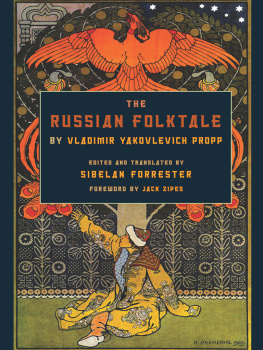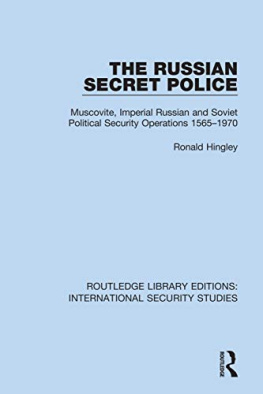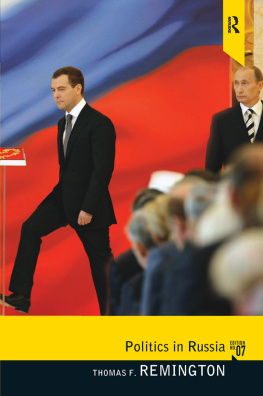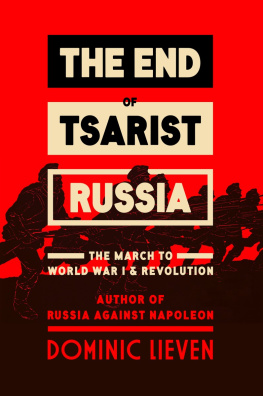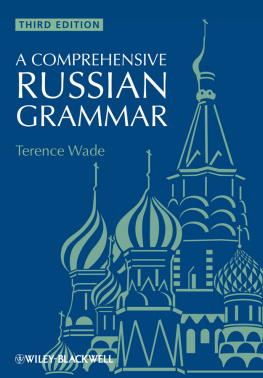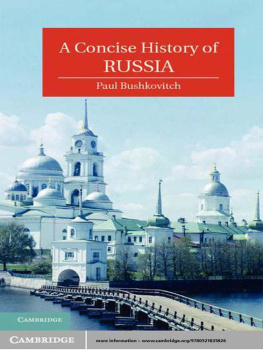Russia
From the reviews of the First Edition:
Beautifully written and organised with admirable clarity. The argument is taut throughout, and the level of generalisation high and yet brought to life by vivid details and buttressed by sufficient supporting evidence succinctly presented. An excellent book which is a first-rate guide to anyone embarking on a study of Russian history or the Soviet Union. It is finely produced and well illustrated.
John Morison, Journal of Russian Studies
The great strength of the work lies in its resolutely analytical framework a lucid, yet succinct, summary and judicious evaluation of the various possible historical explanations of the developments described. From the point of view of the general reader or university undergraduate Dr Acton most usefully summarises the large volume of new research, both in the Soviet Union and the west, which has appeared in recent years. His acquaintance with and understanding of this vast mass of scholarship over a wide variety of topics is indeed impressive, as is his ability to present complicated material in a brief, yet comprehensible, form.
Robert B. McKean, History (UK)
The series of which this briskly written book is a part aims at providing the historical background for a proper understanding of the contemporary world, and to do so by illuminating political, economic, social and cultural structures through a study of their past. Acton does a good job at fulfilling the series goals.
Mark Raeff History Today
Numerous maps and illustrations strengthen this tour of the Russian-Soviet past, as does an interesting epilogue and a fine index. The publisher deserves praise for an unusually attractive book It should be acquired by every library.
Joseph T. Fuhrmann, History (USA)
THE PRESENT AND THE PAST
Founding Editors: Michael Crowder and Juliet Gardiner
These books provide the historical background necessary for a proper understanding of the major nations and regions of the contemporary world. Each contributor illuminates the present political, social, cultural and economic structures of his nation or region through the study of its past. The books, which are fully illustrated with maps and photographs, are written for students, teachers and general readers; and will appeal not only to historians but also to political scientists, economists and sociologists who seek to set their own studies of a particular nation or region in historical perspective.
Titles already published
Australia: A Cultural History (Second Editon) John Rickard
Modern China: A History (Second Edition) Edwin E. Moise
Russia: The Tsarist and Soviet Legacy (Second Edition) Edward Acton
Italy Since 1800: A Nation in the Balance Roger Absalom
THE PRESENT AND THE PAST..........................................................
Russia
The Tsarist and Soviet Legacy
Second Edition
Edward Acton
First published 1986 by Pearson Education Limited
Second edition 1995
Published 2014 by Routledge
2 Park Square, Milton Park, Abingdon, Oxon OX14 4RN
711 Third Avenue, New York, NY 10017, USA
Routledge is an imprint of the Taylor & Francis Group,
an informa business
Copyright 1986, 1995 Taylor & Francis
All rights reserved. No part of this book may be reprinted or reproduced or utilised in any form or by any electronic, mechanical, or other means, now known or hereafter invented, including photocopying and recording, or in any information storage or retrieval system, without permission in writing from the publishers.
Notices
Knowledge and best practice in this field are constantly changing. As new research and experience broaden our understanding, changes in research methods, professional practices, or medical treatment may become necessary.
Practitioners and researchers must always rely on their own experience and knowledge in evaluating and using any information, methods, compounds, or experiments described herein. In using such information or methods they should be mindful of their own safety and the safety of others, including parties for whom they have a professional responsibility.
To the fullest extent of the law, neither the Publisher nor the authors, contributors, or editors, assume any liability for any injury and/or damage to persons or property as a matter of products liability, negligence or otherwise, or from any use or operation of any methods, products, instructions, or ideas contained in the material herein.
ISBN 978-0-582-08922-8 (pbk)
British Library Cataloguing-in-Publication Data
A catalogue record for this book is
available from the British Library
Library of Congress Cataloging-in-Publication Data
Acton, Edward.
Russia / Edward Acton.2nd ed.
p. cm. (The Present and the past)
Includes bibliographical references and index.
ISBN 0-582-08915-8 (csd). ISBN 0-582-08922-0 (ppr)
1. RussiaHistory. 2. Soviet UnionHistory. I. Title.
II. Series.
DK40.A25 1995
947dc20
Set by 8 in 10/12 Sabon
Contents
Among the many friends and relations to whom I am indebted for help in writing this book I would like particularly to thank Philip Bell, Michael de Cossart, Roy Davison, Geoffrey Hosking, Genia and Nick Lampert, Brian Pearce, Christopher Ryan, and Tom Scott for the time and trouble they took to read the manuscript of the first edition, and in some cases parts of the second, and for their invaluable critical comments. The blemishes that remain are no fault of theirs. I am grateful to the British Council for financing a research visit to Moscow and to the British Academy for supporting my research within Britain. Finally, I would like to mention Helen and Natalie, without whose moral support I would have taken much less pleasure in writing the second edition, and Stella, without whom it would not have been written at all.
E.D.J.L.D.A. The University of East Anglia
The publishers would like to thank the following for permission to reproduce illustrative material: Associated Press for .
Illustrations were taken from the following publications: from Gustave Dors Histoire pittoresque, dramatique et caricaturale de la Sainte Russie, 1854.
To my parents
There is much in Russia to puzzle the western mind. Ever since the English discovered Muscovy in the sixteenth century, foreigners have been expressing astonishment at things Russian. It is not only Russian tastes be it for female obesity and interminable church services in the early modern period, for mushroom-picking and chess today, or for untold quantities of vodka throughout the ages which have seemed bizarre. So too has the basic social, political and ideological make-up of Muscovy, the Russian Empire, the Soviet Union and, in turn, todays troubled Federation. The purpose of this book is to provide an introduction to contemporary Russia by examining her past. So rapid has the pace of change been, so far removed is the Russia of the 1990s from that of the Tsar, the revolution, or even Stalin that a historical approach might seem superfluous. Yet it is as true of Russian society as of any other that an assessment of the present which is not rooted in a knowledge of the past is liable to be shallow and distorted.
The value of a historical approach is not difficult to demonstrate where developments since the revolutionary upheaval of 1917 are concerned. The political instability and institutional turmoil of today can only be understood against the background of the Soviet political system which arose from the revolution. The nature of the social tension which confronts the post-Soviet leadership can only be understood in the light of the social transformation which the revolution inaugurated. Neither the current devastation of the Russian economy, nor its longer-term potential, can be appreciated unless set against the background of the industrialization drive undertaken by the Communist regime. Russias relations with her immediate neighbours make little sense without reference to the hegemony Communist Moscow exercised over the other Soviet and eastern European republics. More generally, her international posture is conditioned by the experience of the Soviet years: the decades of isolation which followed the revolution; the carnage and trauma of Hitlers invasion; the paradoxical combination of economic desolation and massively increased military-diplomatic weight bequeathed by the Red Armys victory in 1945; and the nuclear superpower status attained by the USSR. By the same token, however hungrily pre-Soviet and Western currents of thought are now being imbibed, however furiously Soviet ideology, values, art and literature are now repudiated, it is only against the background of that heritage that todays cultural explosion can be understood. Every facet of contemporary Russia bears the imprint of the three-quarters of a century of Communist rule that began with the Bolshevik Revolution in 1917.



